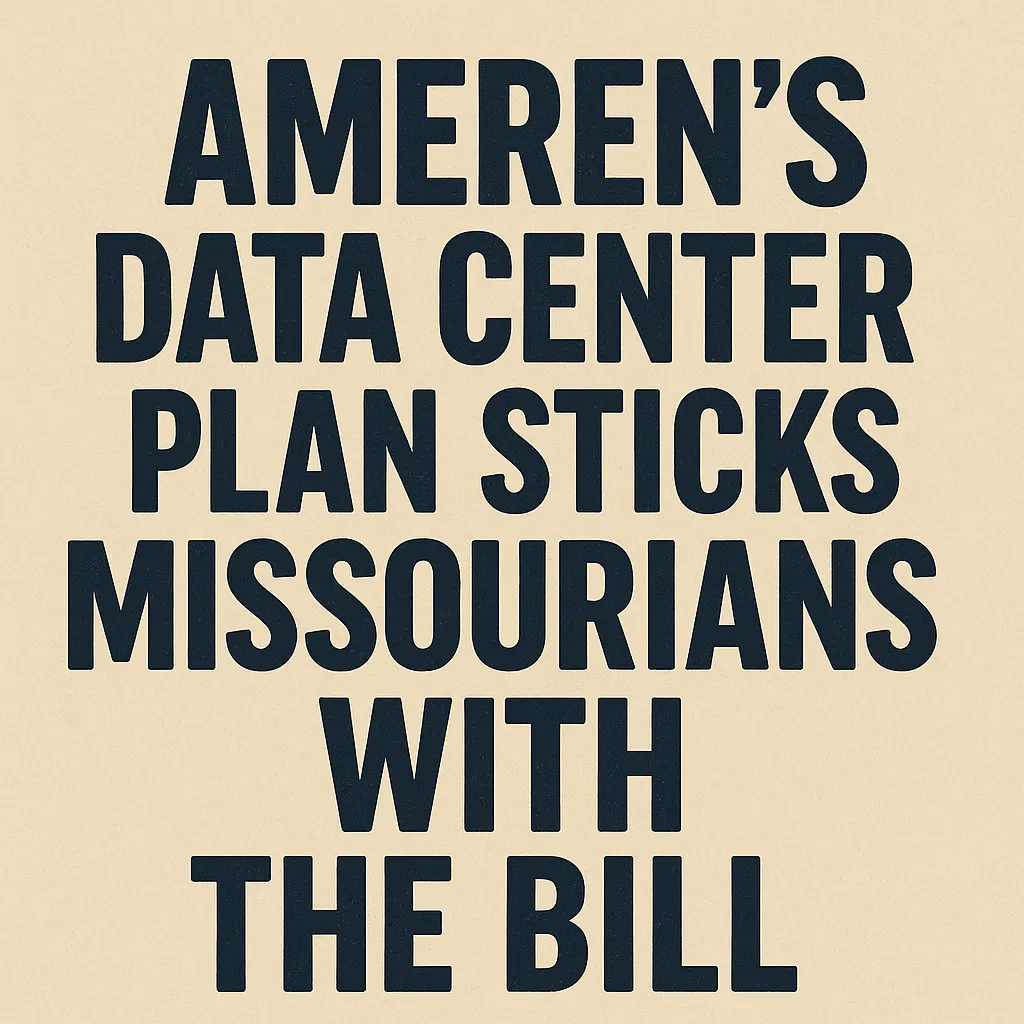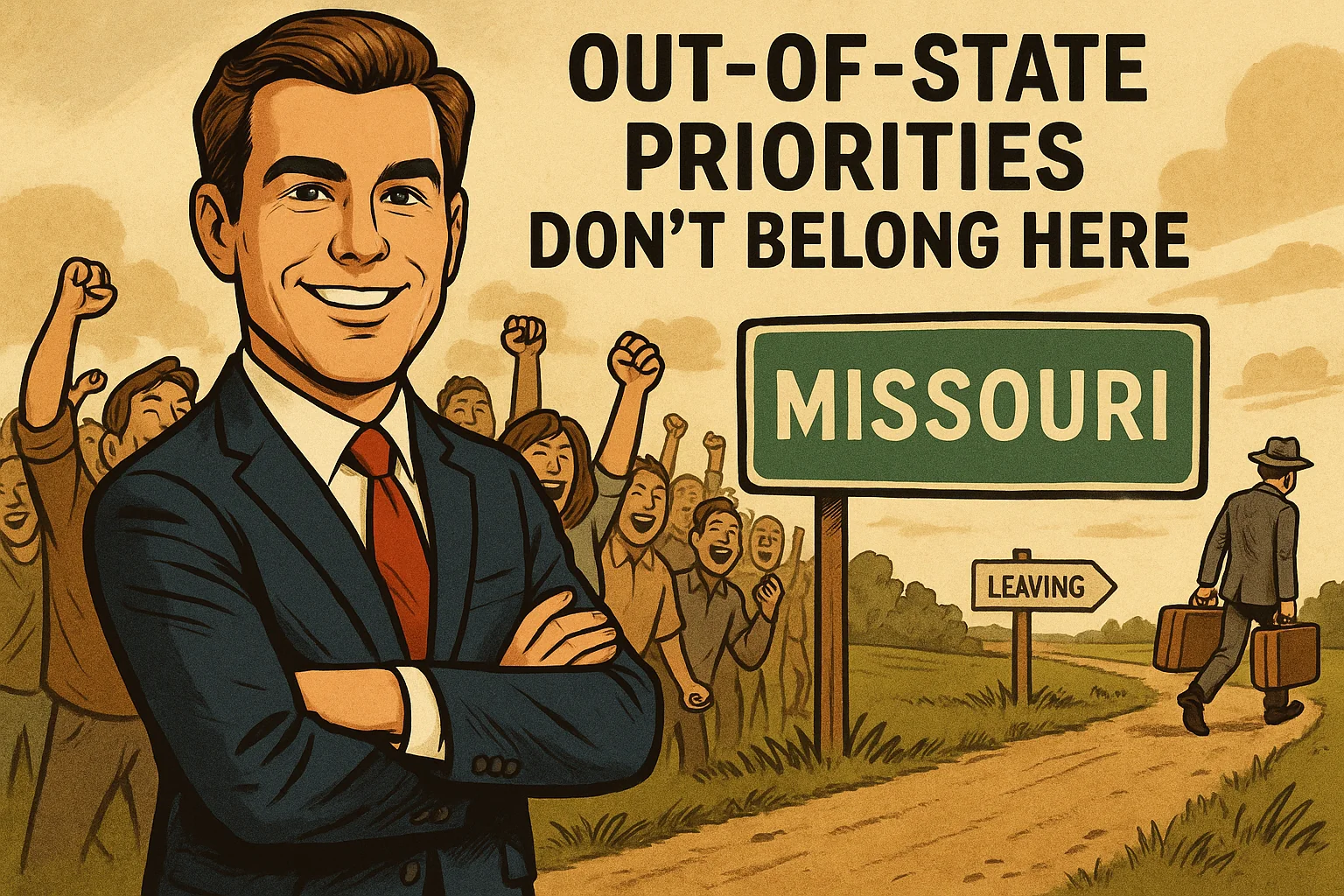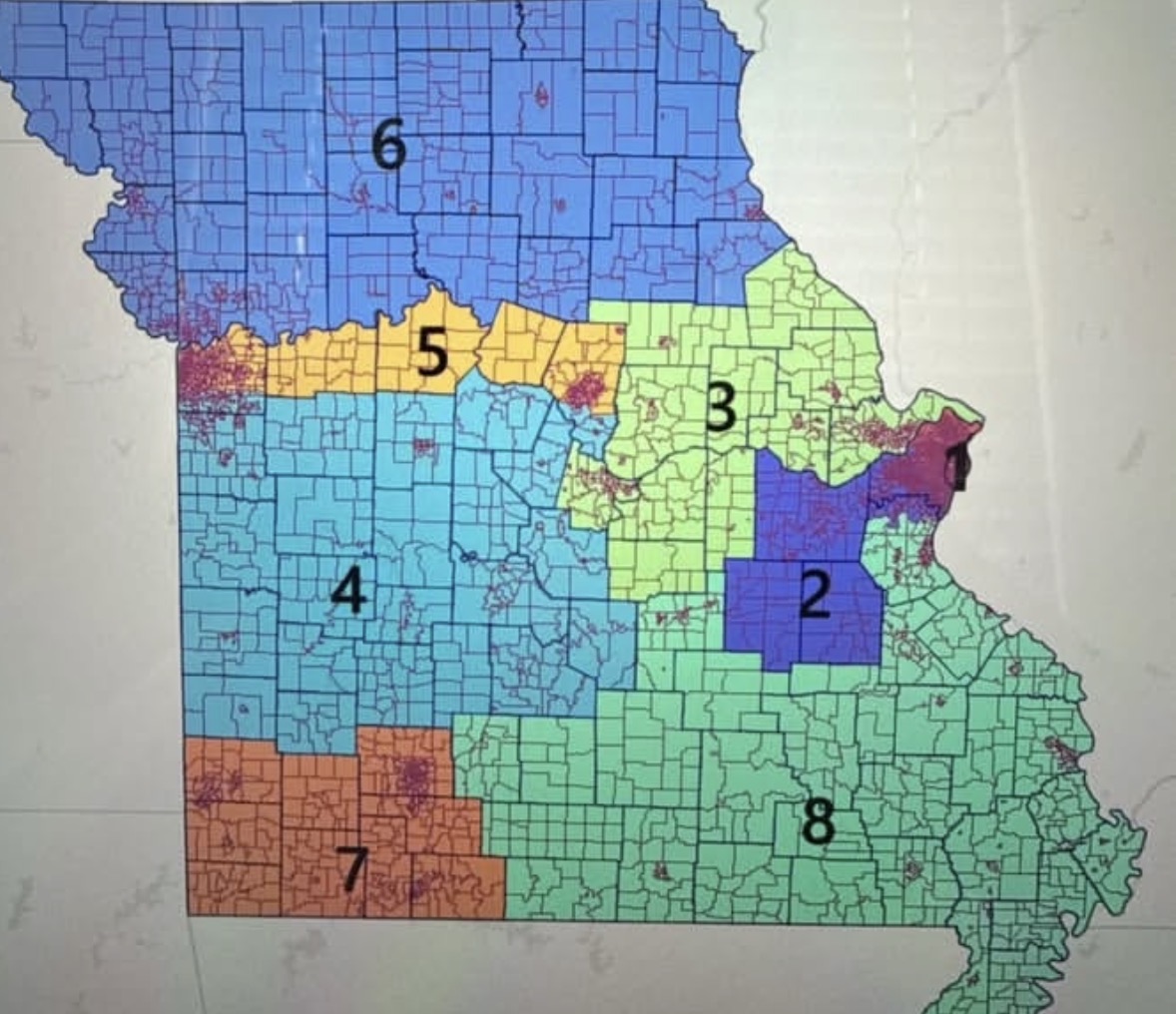Tag: Missouri
-
Ameren Data Center Plan Missouri Sticks Families with the Massive Bill.
Ameren wants special rates to lure data centers, but Missouri regulatory staff warn the plan pushes massive costs onto regular customers. This post breaks down why Missourians shouldn’t be forced to fund corporate power deals—and what fair rules should look like.
Written by

-
Missouri Grown Missouri Strong – An Honest Missouri Voice.
I’ve lived from Kansas City to Jefferson City and across rural Missouri. I know what it takes to represent both urban and rural families. I won’t sell my vote, I won’t take lobbyist gifts, and I’ll be transparent and accountable to you—an honest Missouri voice.
Written by

-
No Tolerance for Slander or Libel — Legal Action Will Follow
I will not tolerate slander or libel—anonymous or otherwise. IP logs can be subpoenaed and identities unmasked. Continued defamation will face swift legal action.
Written by

-
Don’t Let Troops Turn Our Neighborhoods Into War Zones
The push to use National Guard troops for policing and immigration enforcement threatens democracy. Congress must act now to keep our streets free from militarization.
Written by

-
Why I’m the Homegrown Choice for Missouri’s 4th District – and Why Mark Alford Isn’t
My campaign is about homegrown leadership that works for Missouri families, not out-of-state PACs. Here’s how my record and vision stand apart from Mark Alford’s—and why your support matters.
Written by

-
Tariff Shock: What Rural Families in Missouri Will Pay More For
August 2025 tariffs will raise prices on cars, copper, groceries, and lumber—and Mark “Awful” Alford voted for them in the 2025 budget bill, against Missourians’ best interest.
Written by

-
Fly‑Ash Contamination Crisis: Henry County Takes Action for Health and Safety
Recent testing in Henry County, Missouri, uncovered toxic chemicals—hexavalent chromium, arsenic, radium, lead, cobalt—in soil and water near schools and homes. This post outlines community health concerns and proposes a clear action plan to clean up and hold polluters accountable.
Written by

-
Leaked Map Reveals GOP’s Unconstitutional Redistricting Plans
A proposed redistricting map—leaked to my campaign—shows Missouri Republicans exploring a midterm congressional map change. Many legal experts believe it’s unconstitutional under Missouri’s laws.
Written by

-
They Keep Selling Us Out—And Missourians Keep Voting for Them
Missouri Republicans are rigging the system again with illegal redistricting. Mark “Awful” Alford votes with his donors—not with Missouri. It’s time we stopped rewarding betrayal at the ballot box.
Written by

